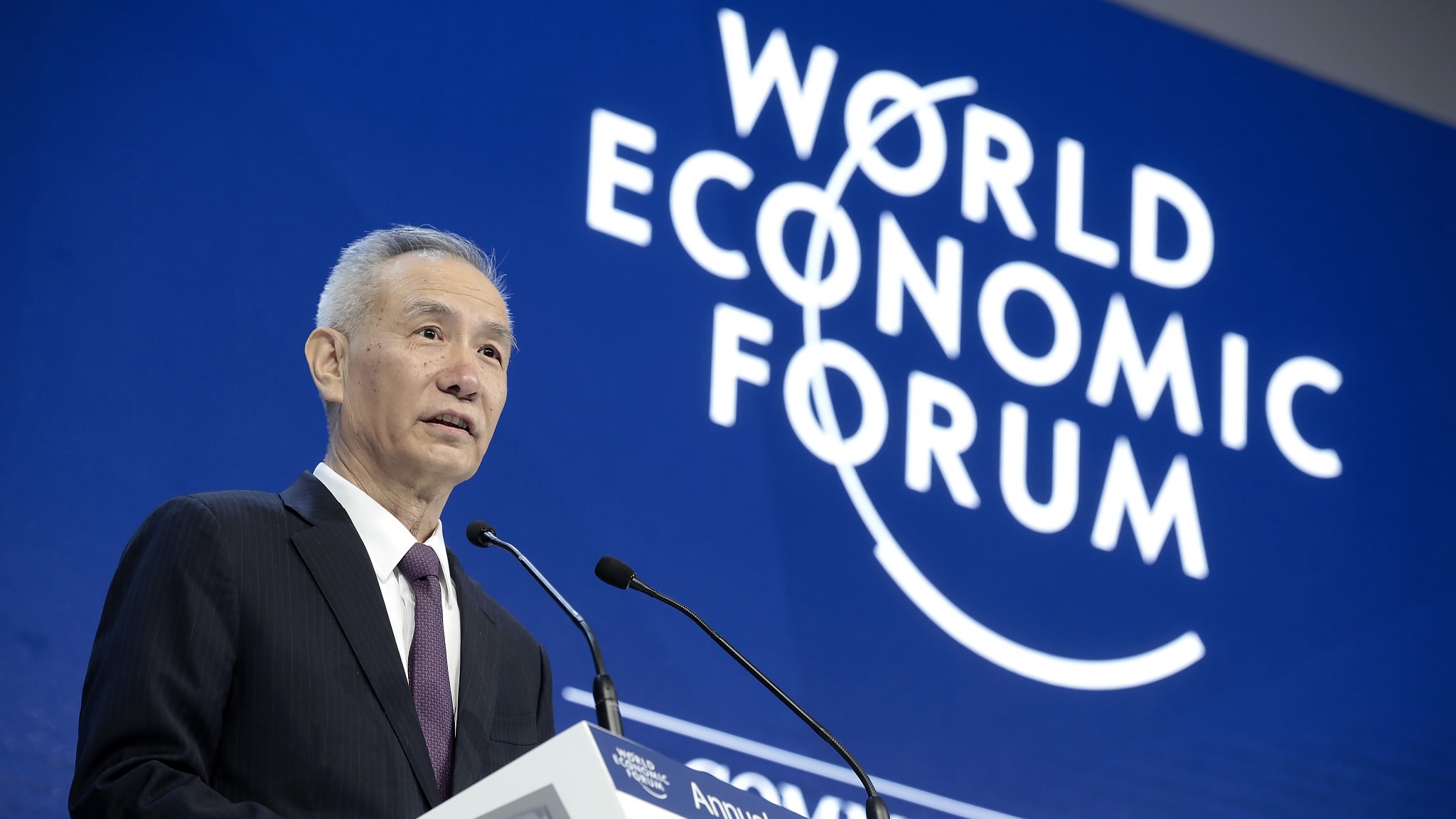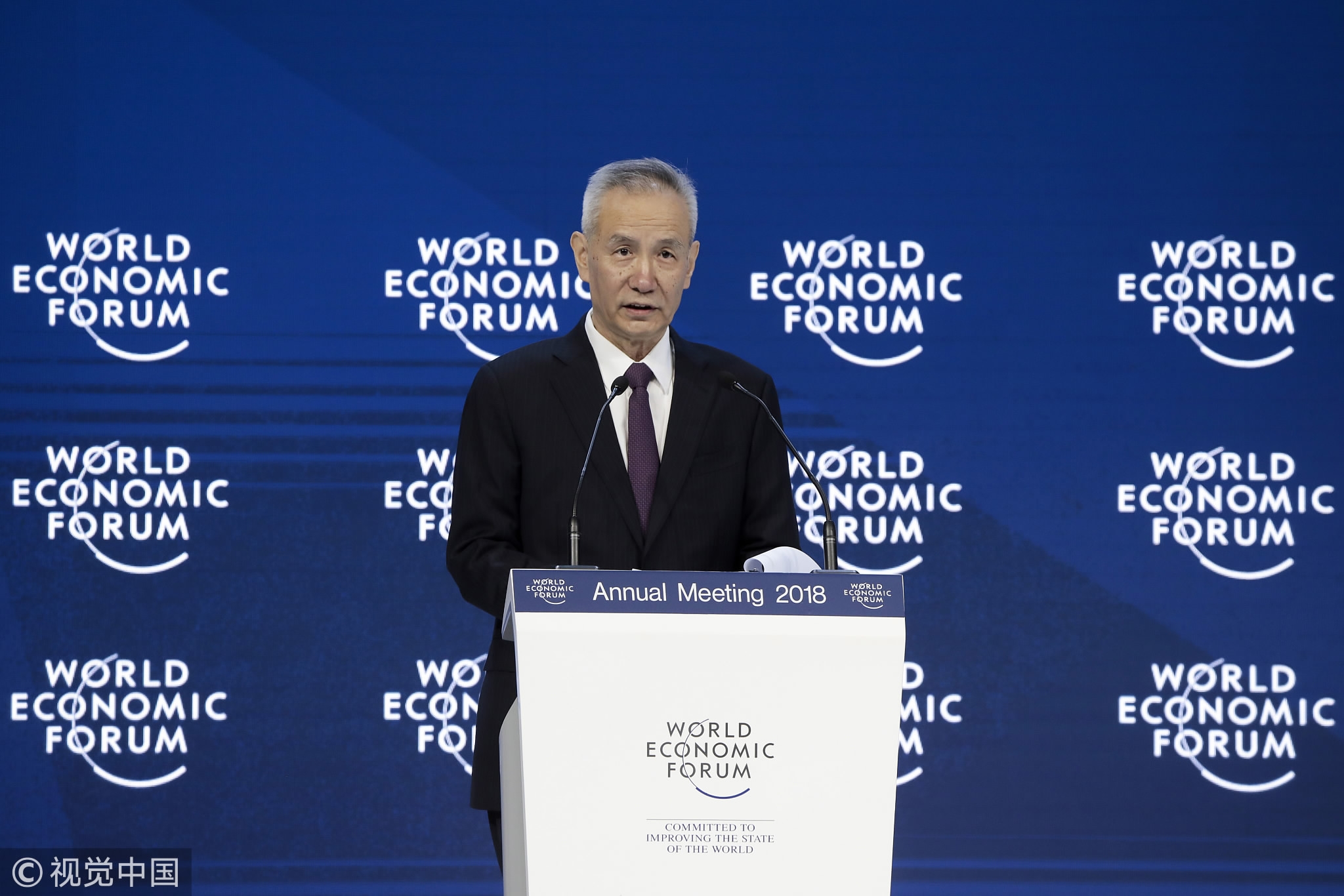
Opinions
22:09, 24-Jan-2018
Opinion: Liu He’s new message at Davos 2018
Guest commentary by John Gong

Representing China at this year at Davos 2018 is Mr. Liu He, a member of the Political Bureau of the Communist Party of China Central Committee and director of the General Office of the Central Leading Group for Financial and Economic Affairs. The latter organization is probably little known outside of China. Think of it as China’s version of the US National Economic Council (NEC), and Liu’s counterpart would be Gary Cohn, the director of the NEC. With the economic size of today's China, contributing to over one third of the global GDP growth according to the latest figures from the IMF, one can easily understand how much weight what he said at the Davos carries on the international market.
I have been expecting to see that Liu would carry on the baton of globalism and multilateralism, which President Xi’s Davos 2017 speech was so famous for. Davos of course is the world’s highest place (I mean literally the altitude) to peddle nation-level PR promotion, as what Modi from India and Trudeau from Canada did to some extent yesterday. But instead, Liu He took the opportunity to talk about something concrete and substantive. As a technocrat, that is probably what he does best.

Liu He, director of the central leading group of the Communist Party of China, speaks during a special session on day two of the World Economic Forum (WEF) in Davos, Switzerland, Jan. 24, 2018. /VCG Photo
Liu He, director of the central leading group of the Communist Party of China, speaks during a special session on day two of the World Economic Forum (WEF) in Davos, Switzerland, Jan. 24, 2018. /VCG Photo
First he talked about the transition to a quality-focused growth model. Essentially that means not every buck of GDP is created equal. A buck of GDP created in that Somerset coal mine in west Pennsylvania is different from a buck of GDP created in that Tesla battery Gigafactory in Sparks, Nevada. By the same token, a buck of GDP created in a rebar rod from a Handan steel mill in Hebei Province is different from a buck of GDP created in a Huawei Mate 10. Indeed some GDPs are created more equal than others. And what Liu is saying is that China will go after those GDP generations that generate less pollution, imparting more technological innovations and represent the future of economic growth.

A Swiss special police officer observes the surrounding area from atop the roof of the Davos Congress Hotel during the World Economic Forum (WEF) annual meeting in Davos, Switzerland Jan. 24, 2018. /VCG Photo
A Swiss special police officer observes the surrounding area from atop the roof of the Davos Congress Hotel during the World Economic Forum (WEF) annual meeting in Davos, Switzerland Jan. 24, 2018. /VCG Photo
Then he mentions the three pressing tasks facing China this year: Containing financial risk, battling pollution and poverty alleviation. The latter two are not surprising to me, as inclusive growth and the environment are the most hugged topics by the bleeding-heart Davos billionaires and millionaires. Kidding aside, China is dead serious about addressing these issues. Take the smog issue in Beijing. I remember when I was picking up Paul Nunes, who runs the Accenture Institute for High Performance, from Beijing Capital Airport several years ago, he said the smog in Beijing is not a big deal. It took just over a decade for Los Angeles to address its smog problem and Beijing would probably take the same time. Well, that is a gross overestimation in my opinion. Anyone living in Beijing can testify this year it is getting much better. Foreign economists who are trained with theories of incentive mechanisms do not quite understand how the Chinese government goes after pollution if it is dead serious.
And the same can be said of poverty alleviation. Liu said this year China will lift 10 million people out of poverty. Just today there is a news report about a county chief in Anhui Province which has the largest county-level population in China. The report talks about some of the measures this guy has been pushing on the poverty alleviation front. But the news also reveals a rule within the Party that is new to me – government officials will not be allowed to leave, I mean physically, if the poverty alleviation target is not achieved.

A view inside the Congress Center during the annual World Economic Forum (WEF) on Jan. 23, 2018 in Davos, eastern Switzerland /VCG Photo
A view inside the Congress Center during the annual World Economic Forum (WEF) on Jan. 23, 2018 in Davos, eastern Switzerland /VCG Photo
The third task that Liu He went into great details, much to my surprise, is the issue of containing financial risks. Just several days ago, I wrote an op-ed piece here about David Lipton, the IMF's first deputy managing director, giving a speech at the 2018 Asian Financial Forum in Hong Kong. Lipton talked about fixing the roof when the sun is shining. Today Liu appears to be talking about retrofitting the roof in that he went into great details about various policy measures in that regard.
What is more interesting is that Liu said that financial risks in China brew in the context of global economic conditions with external factors also playing a role. And he said China looks forward to working with the international community to jointly tackle the challenge.
Overall I would say Liu’s speech is more of substance than rhetoric and more of solution than promotion. A down-to-earth speech!
(Dr. John Gong is a professor at the University of International Business and Economics. The article reflects the author’s opinion, and not necessarily the view of CGTN.)

SITEMAP
Copyright © 2018 CGTN. Beijing ICP prepared NO.16065310-3
Copyright © 2018 CGTN. Beijing ICP prepared NO.16065310-3